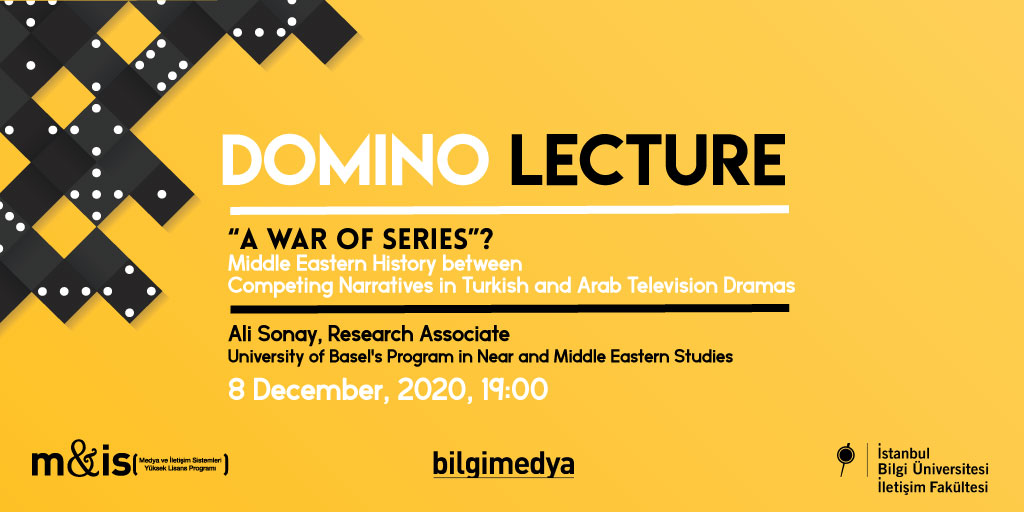Domino Lecture: “A War of Series”? Middle Eastern History between Competing Narratives in Turkish and Arab Television Dramas

Date: 8 December 2020
Time: 19.00
Speaker: Dr. Ali Sonay, Research Associate
For decades after the end of the Ottoman Empire, Turkish-Arab relations/perceptions were characterized by distance. This context, however, has begun to change since the beginning of the 2000s, resulting in a re-negotiation process of common, particularly Ottoman history.
At the political and cultural level, the Ottoman era has increased in presence since the Justice and Development Party (AKP) has been ruling Turkey in 2002. Turkey's “neo-Ottoman” visibility in the Middle East is accompanied by a new conflict front in unfolding since the “Arab Spring”, in which “revolutionary” forces - such as the Turkey - and “counter-revolutionary” states - such as Saudi Arabia and the United Arab Emirates are competing over the region.
One of the main platforms of this conflict is popular culture, specifically television series. Turkish TV series have become increasingly popular in the Arab world over the past decade; it is now one of the largest series exporters worldwide. The broadcast of "Resurrection Ertuğrul" (Diriliş: Ertuğrul, 2014-2019), for example, reflects a narrative of history in which the Ottoman Empire (implicitly Turkey) holds a leading role in the Islamic world. In the perception of Arab viewers this has led to Turkey and the Ottoman Empire appearing in a new positive light, combining elements such as "Islamic, secular, modern, economically successful, being conscious of its own history.” Scholarship has so far focused on the political meaning of these series within Turkey and the popularity among Arab audiences. In this presentation I will, therefore, argue that there is also an “Arab” narrative emerging as an alternative to the “neo-Ottoman” one in Arab productions.
The Saudi-Emirati broadcaster MBC (Middle East Broadcasting Center), for instance, broadcasted in 2019/20 "Kingdoms of Fire", which explicitly aims to reduce the media presence of Turkish series among Arab viewers, referring to the history of the Ottoman Empire in the region. Click to join
Short Bio:
Dr. Ali Sonay is research associate at the University of Basel's Program in Near and Middle Eastern Studies where he has been since September 2018. He graduated from the University of Erlangen-Nuremberg with a Magister Artium in Political Science, Islamic Studies, and Economics and was awarded a PhD in 2016 from the Department of Middle Eastern Politics at Philipps-University Marburg. His thesis analyses the politics of the Egyptian April 6th Youth Movement as an example of social movement dynamics during the 2011 Arab upheavals. Thereafter he was a Post-Doctoral Fellow at the Department of Politics and International Studies (POLIS), University of Cambridge, working with the University of Cambridge – Al Jazeera Media Project on research into contemporary media in Turkey, Tunisia, and Morocco.